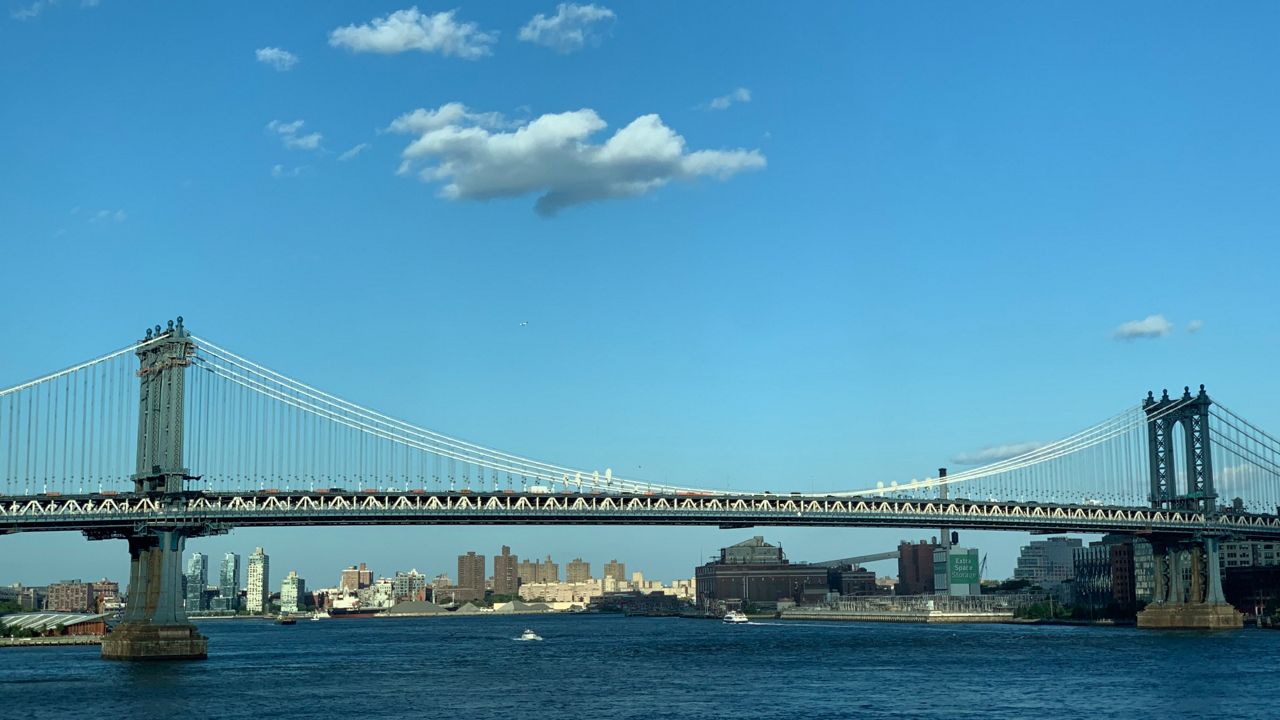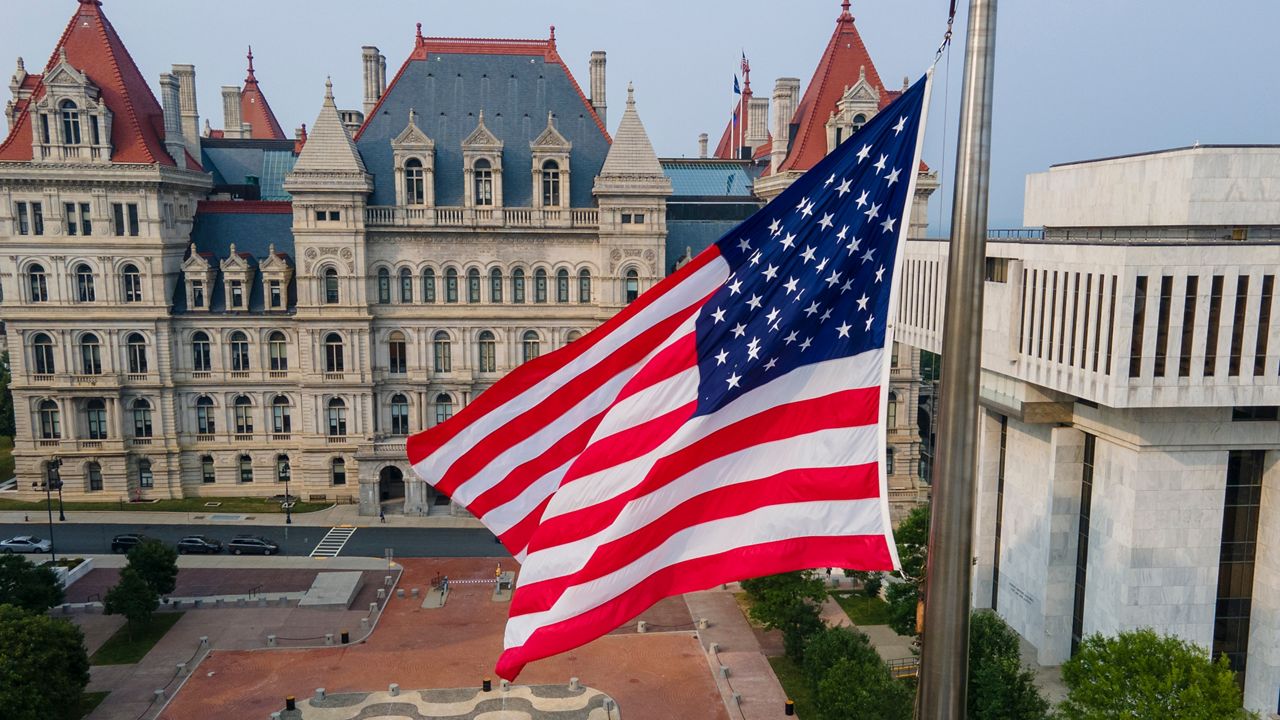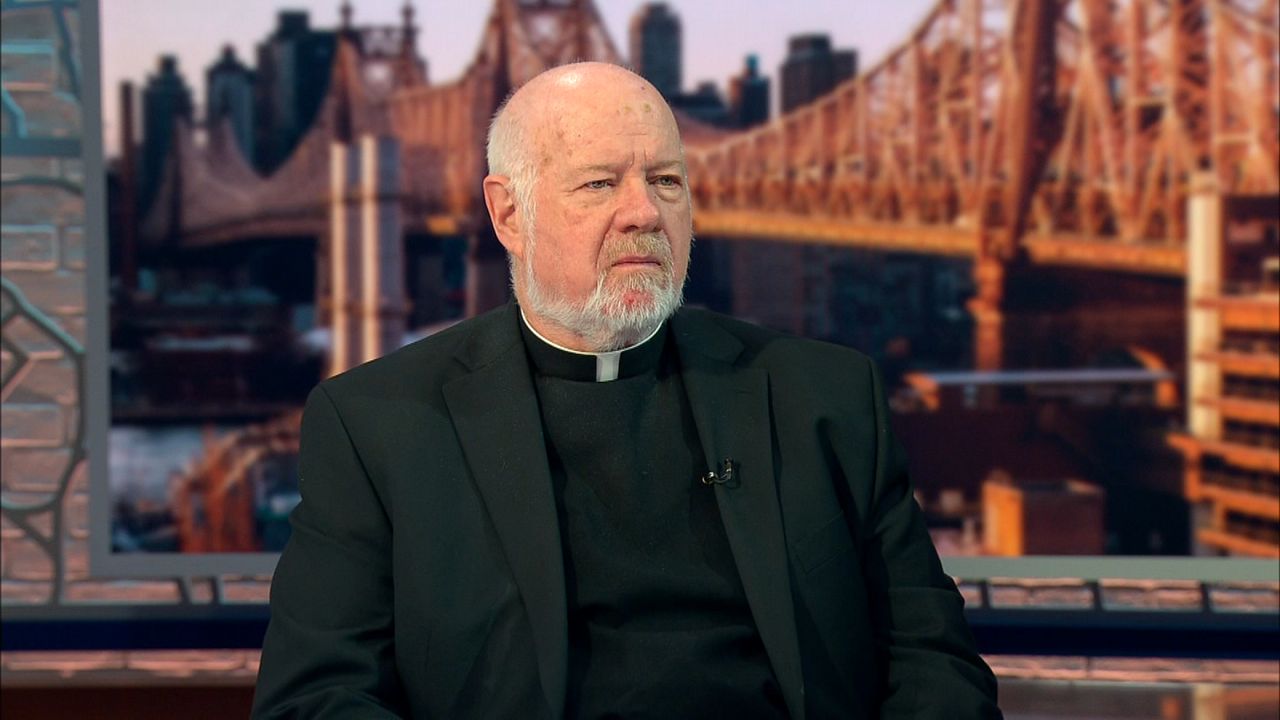Taeler Danhieux has to hold onto the railing when she climbs the stairs to her fifth-floor walkup apartment in Inwood. But she’s happy she can do it at all.
Just one year ago, Danhieux suffered a brain aneurysm that burst.
“The doctors basically told my family, like, bring everyone in to say goodbye,” Danhieux said. “By a miracle, and the work that the physicians and nurses and everyone did on me, I’m here today.”
What You Need To Know
- NewYork-Presbyterian/Columbia University Irving Medical Center tells NY1 that after input from the community, it's walking back its plan to close the Acute Inpatient Rehab Unit, and wants to hold on to five beds out of the 16
- Some former patients and advocates say that's not enough as concerns rise over where future rehab patients — including those recovering from major health issues like strokes, transplants and cancer treatments — will go
- The next comparable rehab unit for patients would be Mount Sinai on Madison Avenue near East 101st Street or NewYork-Presbyterian/Weill Cornell Medical Center on York Avenue at East 68th Street
Danhieux spent almost 40 days in the ICU at NewYork-Presbyterian/Columbia University Irving Medical Center, and seven days in its rehabilitation unit at the Milstein Hospital.
“I think the biggest impact was the post-injury recovery that I got at the inpatient rehab,” she said.
When she first arrived for rehab, she couldn’t even sit up on her own. She says coming back to the hospital brings up a lot of emotions.
“I almost died here. Columbia did save my life, but the inpatient rehab is really the ones who gave me my life back,” she said.
She’s worried for other patients though, because NewYork-Presbyterian announced plans to shut down the unit, which helps patients recover from major health issues, including strokes, transplants and cancer treatments.
The hospital wanted to use all 16 rehab beds in the emergency department.
Now, NewYork-Presbyterian tells NY1 after input from the community it’s walking back that plan, and wants to hold on to five beds out of the 16, saying in part, “We are seeking approval from the Department of Health to convert 11 beds to in-patient beds. This is to help reduce wait times and alleviate crowding in one of New York’s busiest emergency departments. We will continue to have five beds dedicated to acute in-patient rehabilitation and maintain our rehabilitation gym.”
Advocates like Rita Hamburgh, who lives in the neighborhood and worked at NewYork-Presbyterian for 35 years, say that’s not enough.
“The patients have nowhere to go,” Hamburgh said. “There's nothing locally, and their families, who have no cars, who don’t have a lot of money. How are they going to visit their loved ones?”
The next comparable rehab unit for patients would be Mount Sinai on Madison Avenue near East 101st Street, or NewYork-Presbyterian/Weill Cornell Medical Center on York Avenue at East 68th Street.
Meanwhile, Danhieux hopes future patients get access to the same level of care she did.
“I am able to walk. I, like I said, went back to work. I really got a second chance at life,” she said.
Hamburgh says that back when she worked at the hospital, there were around 40 rehab beds at one point.
Meanwhile, there is a rally planned for Wednesday afternoon at 12:30 p.m. outside of the hospital at the Haven Plaza for community members, advocates and hospital staff who want to protest the hospital’s plans.











